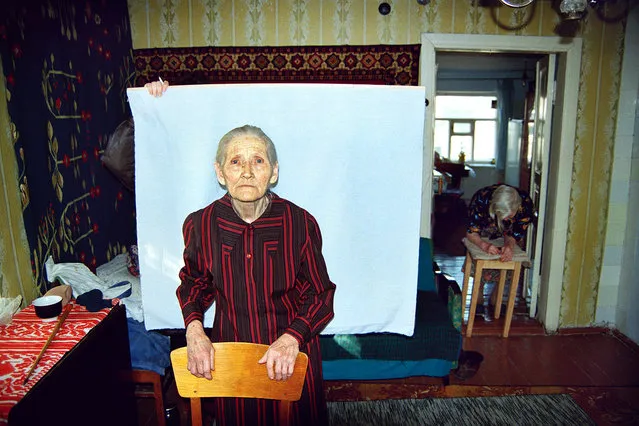
In 1994, after the fall of the Soviet Union, all Ukrainians had to get a new passport – and photographer Alexander Chekmenev was on hand to take their photos. The snatched extra shots he took are remarkable in their honesty and tenderness. (Photo by Alexander Chekmenev/The Guardian)
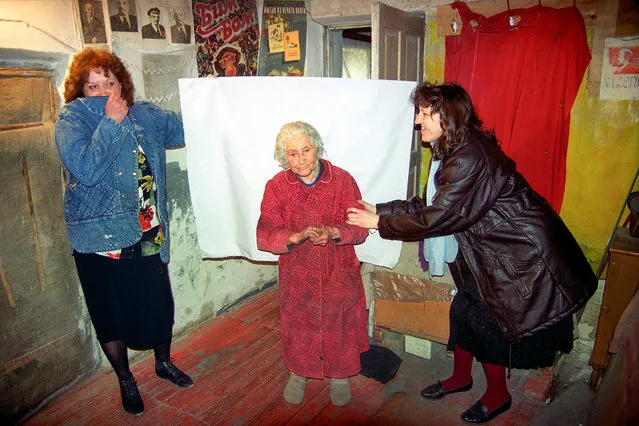
Chekmenev got an offer to photograph those who couldn’t easily leave their houses. (Photo by Alexander Chekmenev/The Guardian)
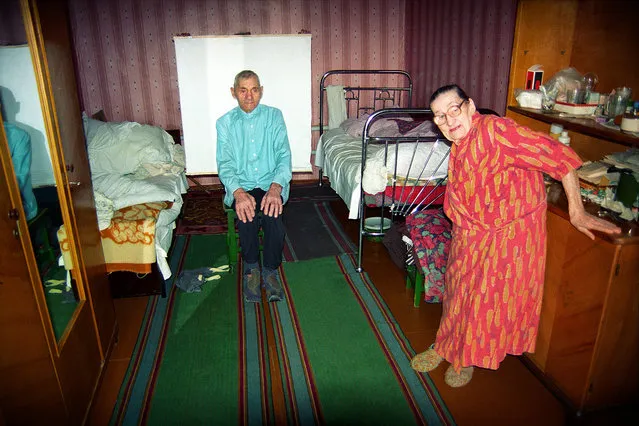
After the breakup of the USSR, everyone in Ukraine had to get a new passport – complete with a new photo. (Photo by Alexander Chekmenev/The Guardian)
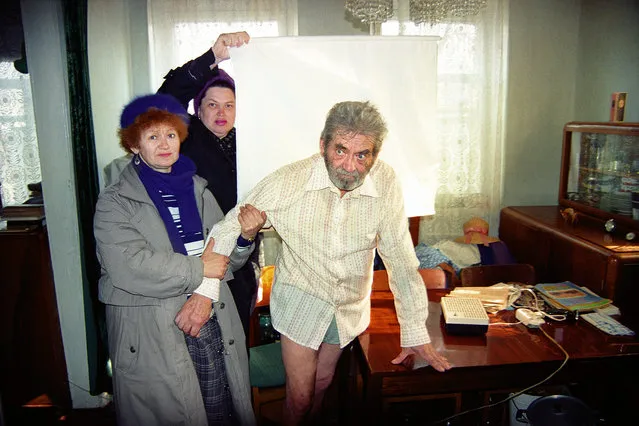
The new passport photos became a lucrative business for some photographers, but when Chekmenev encountered these people – often frail or mentally ill – he took on the task for free. (Photo by Alexander Chekmenev/The Guardian)
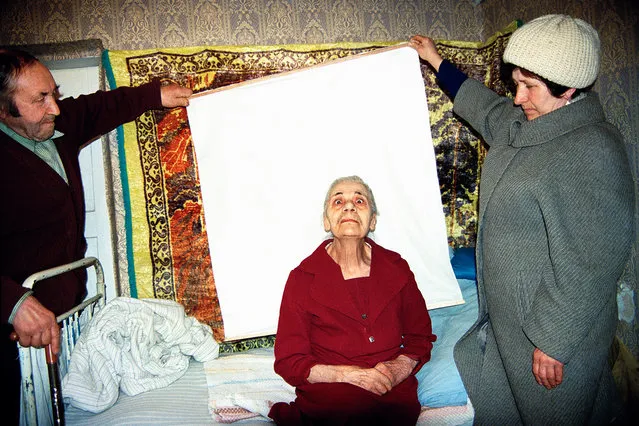
He was provided with black and white film, and would photograph as many as 60 people a day, against a portable white backdrop. But he also carried a wide-angle camera with expensive C-41 colour film, and took his own photo portraits. (Photo by Alexander Chekmenev/The Guardian)
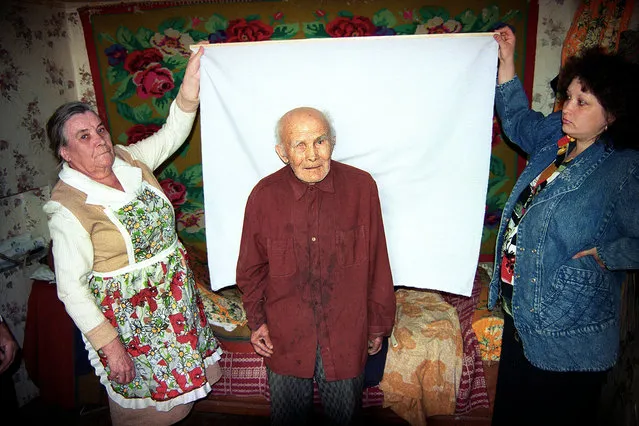
Chekmenev described the sessions in an interview with the Guardian’s Simon Bowcock. “An old woman who lived in one particular house had prepared a coffin for herself. She lived in one room, while the coffin inhabited the other one. She was basically ready to leave for the other world at any moment”. (Photo by Alexander Chekmenev/The Guardian)
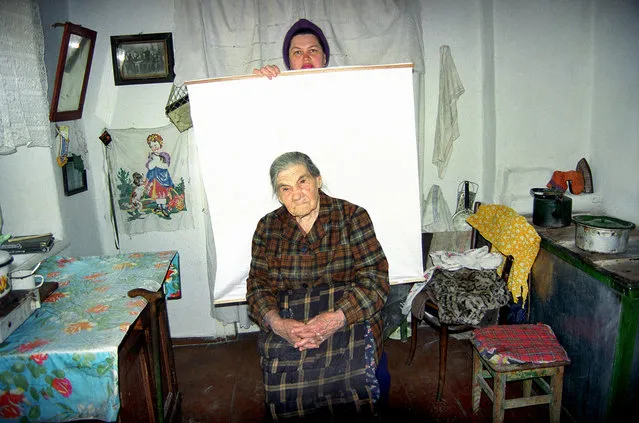
“I also took photos of people with mental disorders. They did not know what was going on, why they were being seated or why I was taking pictures of them. There was one bed-stricken person who had to be lifted from his bed. Two social workers were holding him in an upright position, and the other two were holding the backdrop”. (Photo by Alexander Chekmenev/The Guardian)
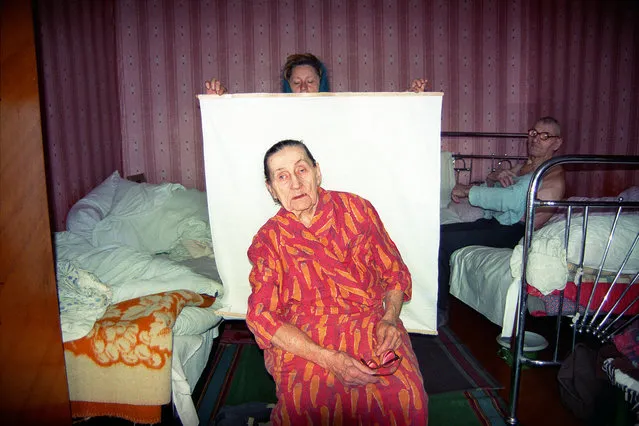
Chekmenev had so little colour film that he couldn’t take more than one photo per subject – and ended up with just 36 images from the two-year project. (Photo by Alexander Chekmenev/The Guardian)
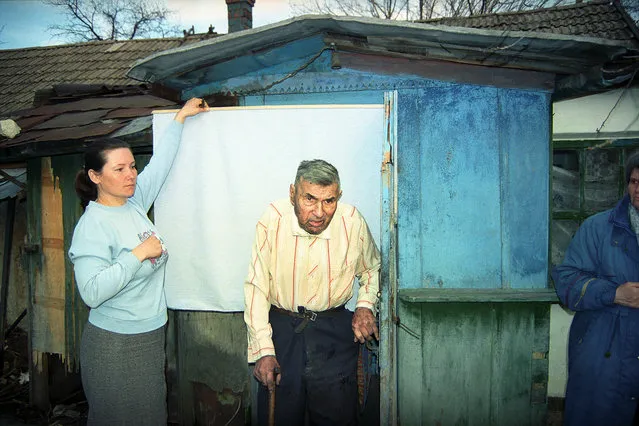
In front of his lens, the old and frail are given dignity and purpose, if only for a moment. (Photo by Alexander Chekmenev/The Guardian)
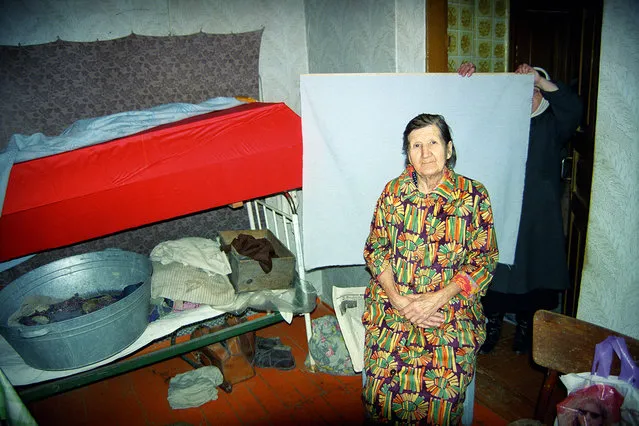
“The important thing is how each country is treating its retirees”, he says. “It indicates the quality of life in that country. For me, this is the true passport of a country”. (Photo by Alexander Chekmenev/The Guardian)
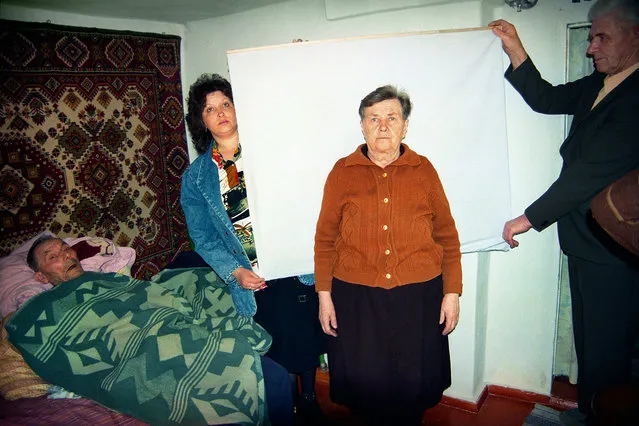
Chekmenev went on to become an accomplished street photographer and photojournalist, documenting everyday people in flea markets and rural regions, as well as the recent violent unrest in the Donbass region. (Photo by Alexander Chekmenev/The Guardian)
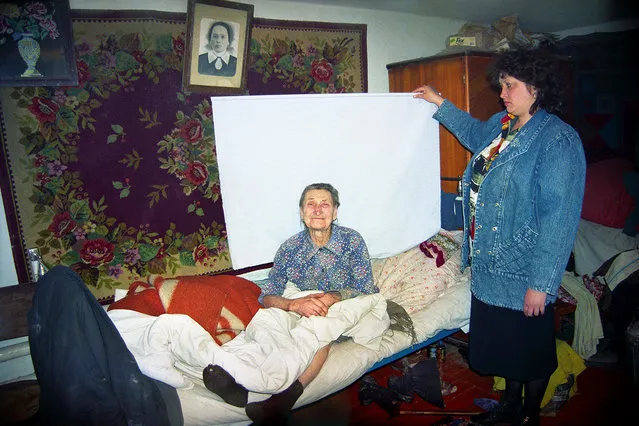
His success has allowed him to finally make a book of his passport images, more than 20 years after he took them. (Photo by Alexander Chekmenev/The Guardian)
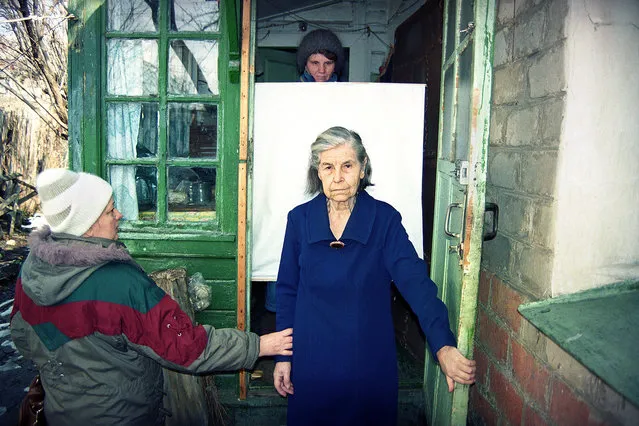
“Passport” project is like a reminder – or an appeal – to all that there are people who need our help, our attention and our psychological support”, he says. “And they can be living right next to us, just behind the wall of a neighbouring apartment or house”. (Photo by Alexander Chekmenev/The Guardian)
30 Dec 2016 10:22:00,
post received
0 comments
